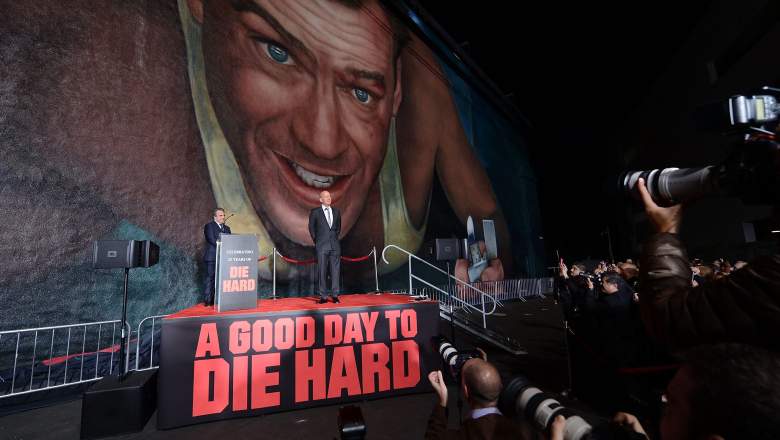
It’s that time of year for hunkering down to watch a Christmas film with the family – and to hold the annual debate over whether or not Die Hard actually counts as one.
This debate has now become, in some film history circles, as big a question as to the meaning of “Rosebud” in Citizen Kane or whether Han Solo or Greedo shot first in Star Wars. It’s even important enough to warrant a poll from YouGov, which concluded that Die Hard is not a Christmas film.
The arguments around the “Christmassiness” of the 1988 movie revolve around three themes: creative, commercial and cultural.
The creative argument is based on the intentions of those involved in making the film. As both director John McTiernan and writer Steven De Souza have confirmed that Die Hard is a Christmas movie, then the creative case would seem very much in favour.
The Commercial & Cultural Arguments
The commercial argument is that Christmas movies are released at Christmas and are generally intended for family audiences. However, Die Hard was a summer release (15 July 1988) in the United States and very obviously for adults. However, this argument that a summer release can’t be a christmas movie does not hold up to even the most cursory examination.
That perennial seasonal favourite Holiday Inn, in which Bing Crosby warbles Irving Berlin’s White Christmas, was also a summer release (4 August 1942), and no one argues that isn’t a Christmas movie. Even the remake, White Christmas, was released in mid-October 1954. So proximity to Christmas is not necessarily a criterion for a Christmas film.
9 Reasons It Is a Christmas Film
The most common understanding of a Christmas film – as outlined by Mark Connelly in the introduction to Christmas at the Movies – is that the Christmas theme and motif are central to the film, such as It’s a Wonderful Life and the many versions of Charles Dickens’s A Christmas Carol.
But there’s another category, of films that just happen to be set around Christmas, a group that includes films such as the murder mystery The Thin Man and the mercenaries-in-Africa violence-fest The Wild Geese. And it’s this category to which Die Hard belongs.
Here are nine Christmas motifs I detected (there are no doubt more):
- The basic narrative situation of Die Hard is a man returning to his family for Christmas.
- His wife is called Holly.
- It takes place on Christmas Eve. Not Thanksgiving or the Fourth of July. It could have been set any week of the year, but wasn’t.
- The chief villain Hans Gruber (Alan Rickman) explicitly invokes the Christmas spirit: “It’s Christmas, Theo, it’s a time for miracles.”
- Gruber is a classic bad capitalist villain: he’s there to steal money. Just as Old Man Potter does in It’s a Wonderful Life.
- The soundtrack features Christmas tunes new and old: Run DMC’s Christmas in Hollis and Frank Sinatra’s rendition of Let it Snow.
- Santa Claus makes an appearance (in the form of a dead terrorist).
- The film ends with the of character of limo driver Argyle (De’voreaux White) looking forward to New Year’s Eve.
And point nine, the clinching argument, perhaps, is that Christmas is a socially invented tradition, and like all invented traditions it continues to adapt and evolve. Films don’t need to include religious references or a man in a red suit, Christmas changes every year and as such what constitutes as a Christmas flick has expanded hugely.
Our tradition at chez Chapman is the Ultimate Christmas Eve Action Movie Double Bill: Die Hard and the James Bond film On Her Majesty’s Secret Service. We start with Bond spying Diana Rigg on the beach around 4pm, take a break for dinner between films, and get around to Gruber taking his plunge from the 30th floor of Nakatomi Tower by 9:30. This is just in time for the repeat of the Christmas dinner episode of The Vicar of Dibley (which I’ve always thought would be a whole lot funnier if Dawn French wielded a Heckler & Koch MP5).![]()
By James Chapman, Professor of Film Studies, University of Leicester
This article is republished from The Conversation under a Creative Commons license. Read the original article.